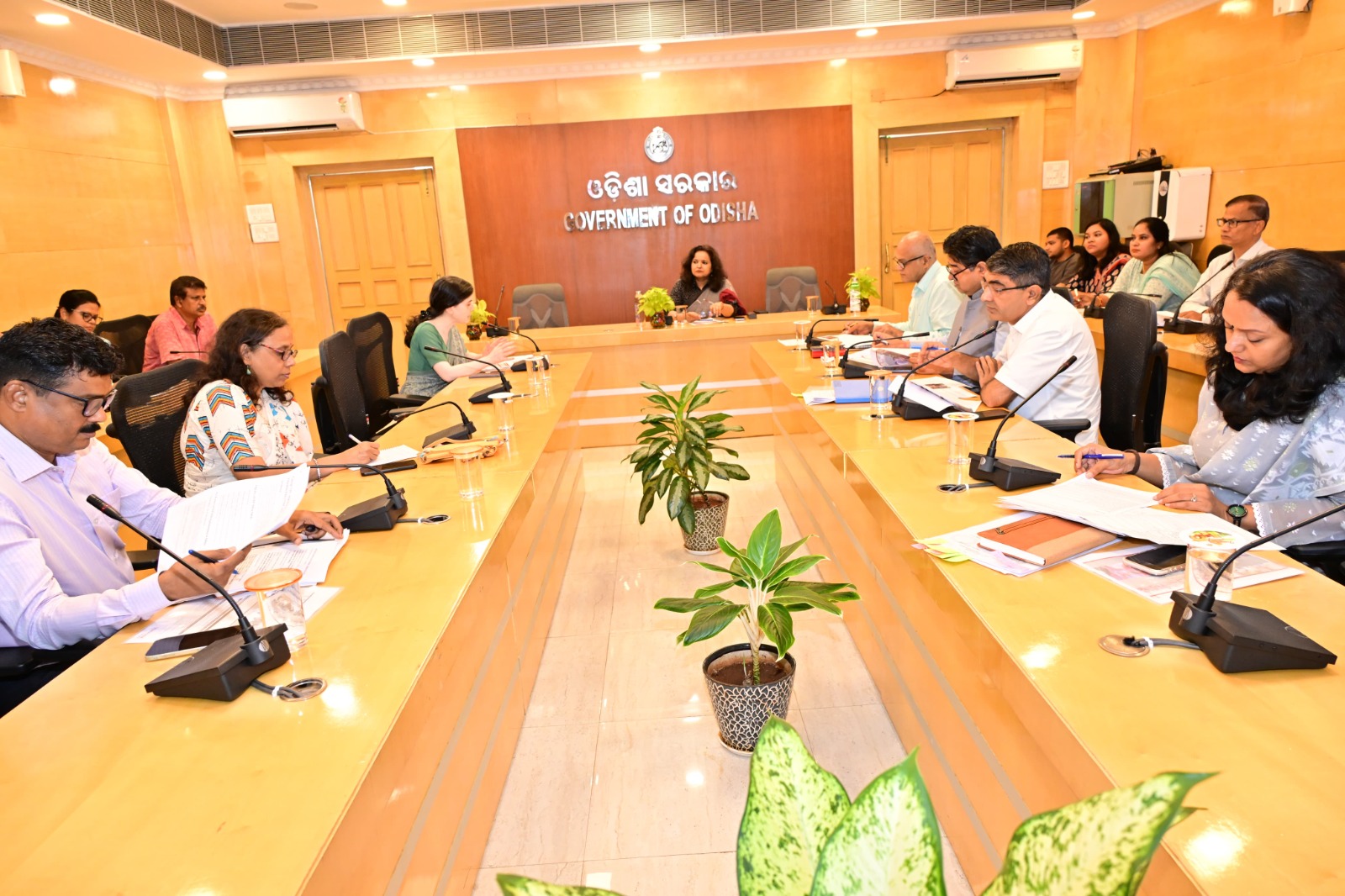Bhubaneswar: Odisha is taking significant strides in implementing the National Education Policy (NEP) 2020, with a recent high-level meeting reviewing substantial progress and outlining future strategies. The Second State Task Force meeting, chaired by Anu Garg, Development Commissioner underscored the state’s commitment to a holistic and outcome-based approach to educational reform.
The meeting, held at the Lokseva Bhawan, saw active participation from key departmental heads including Shri Sanjeeb Kumar Mishra, Principal Secretary of Scheduled Tribes and Scheduled Castes Development, Minority & Backward Classes Welfare; Smt. Shalini Pandit, Secretary of School and Mass Education; and Shri Bhupendra Singh Poonia, Secretary of Skill Development & Technical Education. Discussions focused on crucial areas such as outcome-based strategies, the establishment of an IT-enabled monitoring system, and the promotion of Multilingual Education (MLE).
Key Highlights of Progress:
- Strengthening Foundational Education: Odisha has made remarkable progress in early childhood education, with over 45,000 pre-primary Shishu Vatika classrooms now established across the state. These centers are crucial for providing a strong base for young learners.
- Teacher Empowerment: Collaborative training programs for Shishu Vatika teachers have been successfully conducted with support from NCERT and RIE Bhubaneswar. This initiative is complemented by the statewide distribution of new workbooks and teacher’s handbooks, ensuring consistent and effective pedagogical practices.
- Capacity Building of Educational Institutions: The Directorate of Teacher Education and the State Council of Educational Research and Training (SCERT) are being strengthened. Their expanded roles will include curriculum development, textbook preparation, and teacher training for all levels, from Shishu Vatika to Class XII, aligning with NCERT guidelines.
- Addressing Learning Gaps: A special house-to-house survey campaign, launched in May 2025, is actively identifying school dropouts and children with special needs (CwSN). This survey also assesses multilingual education requirements, aiming to prevent future dropouts and re-engage out-of-school children, a core tenet of NEP 2020.
- Innovative Assessment: The academic year 2024-25 saw the introduction of the Holistic Progress Card (HPC) for students in Classes I to VIII. This innovative assessment tool evaluates creativity, critical thinking, and essential life skills, moving beyond traditional memorization-based evaluations.
- Technology-Driven Monitoring: A significant emphasis was placed on developing an IT-enabled monitoring system to track each child’s progress from Shishu Vatika to Class XII. This system will provide crucial data for informed decision-making and continuous support.
- Digital Learning Initiatives: The state is actively leveraging technology through initiatives like the “Sikhayan Sopan” Assessment Register and the e-Jaadui Pitara app, which provide technology-enabled learning along with comprehensive Teaching Learning Materials.
- Flagship Schemes: Odisha continues to promote national and state flagship schemes, including PM SHRI and the Godabarisha Mishra Adarsha Prathamik Vidyalaya model schools, further boosting the quality of education across the state.
The collective efforts highlighted in the meeting underscore Odisha’s resolute drive towards a comprehensive and equitable implementation of NEP 2020, aiming to transform the educational landscape for future generations.


